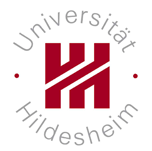Call
for Papers (now expired) |
English language teaching (EFL and ESL) is usually considered to embody a
key role in education as a whole – also as an opportunity for the
development of intercultural learning and tolerance, parallel to mother tongue
education. High quality children’s literature can help readers learn to map
the world story by story, in fine overlays of stirring narrative, while they
successively acquire skills such as visual, critical, literary and intercultural
literacy.
Children’s literature and young adult English-language literature across the
world displays a stunning diversity, yet often remains entirely undiscovered
by English language teachers, and consequently also by English learners. We
consider this is against the best interests of children, young language learners
and society as a whole, as the important contribution of reading to language
acquisition and world knowledge, through young adult literature as well as
graded readers, has been well documented. While English learning is so time-consuming
throughout schooling and beyond, it is surely unacceptable that the potential
for humanist discourse that arises through interaction between language learners
and first-rate children’s literature is so manifestly under-realised.
The more complex picture books with their layers of meanings – often hidden
in the pictures and picture/ word interplays – are highly suitable for thoughtful
literary exchanges and the negotiation of meaning, and are a fine opportunity
for rich English-medium education of young learners. Picture books pave the
way towards extensive reading – the most pleasurable path to familiarity with
diverse meanings and language patterns.
If children and teenagers, whose English language exposure revolves solely
around openings for functional communicative learning, are later plunged straight
into adult literature as advanced learners, they miss out on the affirmative,
motivating and self-esteem-promoting educational potential of children’s and
young adult literature, which is a vital apprenticeship to life and to becoming
a reader. The need for a synergy between mother tongue literature education
and English medium literature education, particularly in teacher training,
has surely arrived.
The International Conference Children's Literature
in Language Education – from Picture Books to Young Adult Fiction
intends to disseminate information and provide a forum for the exchange of
ideas and experiences on the power of literature for the young; approaches
to children’s literature and young adult literature as a bridge to reading
beyond school; gender considerations – the different attitudes of different
readers – and the resulting consequences with regard to the canon of literary
texts for EFL; and the debate around original children’s literature and graded
readers.
Conference
committee: Janice Bland and Prof. Dr. Christiane Lütge Hildesheim University English Department Marienburger Platz 22 D – 31141 Hildesheim www.uni-hildesheim.de/de/index.htm |
 |